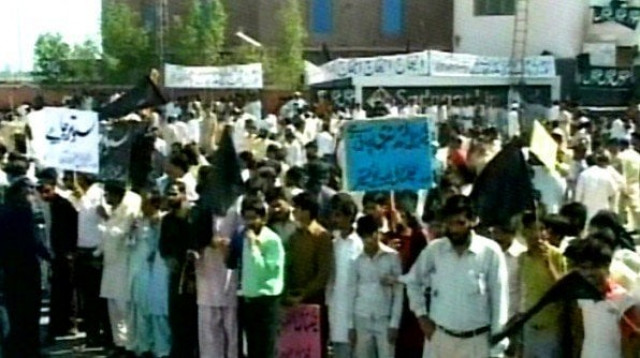Aptma calls for strike against yarn export duty

Aptma Punjab region Chairman Gohar Ejaz said: “Spinners will start protests from Lahore on Tuesday and the next day we will protest in Sheikhupura,” He said the spinners would lose billions in the next two months owing to the restriction on yarn exports. “The spinners will face a loss of Rs20 billion in the next two months because of the 15 per cent duty on yarn exports,” he added.
The government had imposed the duty in the face of yarn shortage in the local market. Earlier, the textile ministry held a series of meetings with the spinners and the value added textile sector to listen to their views. Later, when the government took time in taking a definite position on the yarn issue, the value added sector staged protests across the country demanding a ban or 25 per cent regulatory duty on exports.
Ejaz said “we are not against any government subsidy to the value added sector but what the government has done by imposing the duty on yarn will support the value added sector at the cost of spinners.” “More than 70 per cent of the spinners are running short of cotton and thus facing serious problems,” Ejaz added. The spinners said that the duty on yarn would lead to an increase in prices of yarn in the local market like the case of sugar. Both the spinners and the value added people have accused each other of making huge profits in the last 10 months since yarn prices started shooting up in international markets.
Jawed Bilwani, Chairman Pakistan Apparel Forum (PAF), an umbrella organisation of over a dozen value added textile associations, said that the duty on yarn exports would improve its supply in the local market instead of its shortage. “It is obvious that yarn availability in local markets will improve as speculators who have stocked yarn will bring it into markets. The impact on yarn supply will be seen in the coming week and not immediately as this will become clear after the stoppage of exports,” Bilwani said. “We are not asking the spinners to provide us cheap yarn, we are ready to buy it at international prices.
What we demand is just availability in the market,” he said, adding that the spinners would also benefit if they provided yarn to the textile sector because this way they could save freight and sell at the same international rates. “Let’s see whether the spinners close mills during protests or not,” he said, adding that it was unexpected that the spinners would shut down their mills and the strike calls are just a tactic to pressurise the government.”
Published in the Express Tribune, May 18th, 2010.



















COMMENTS
Comments are moderated and generally will be posted if they are on-topic and not abusive.
For more information, please see our Comments FAQ